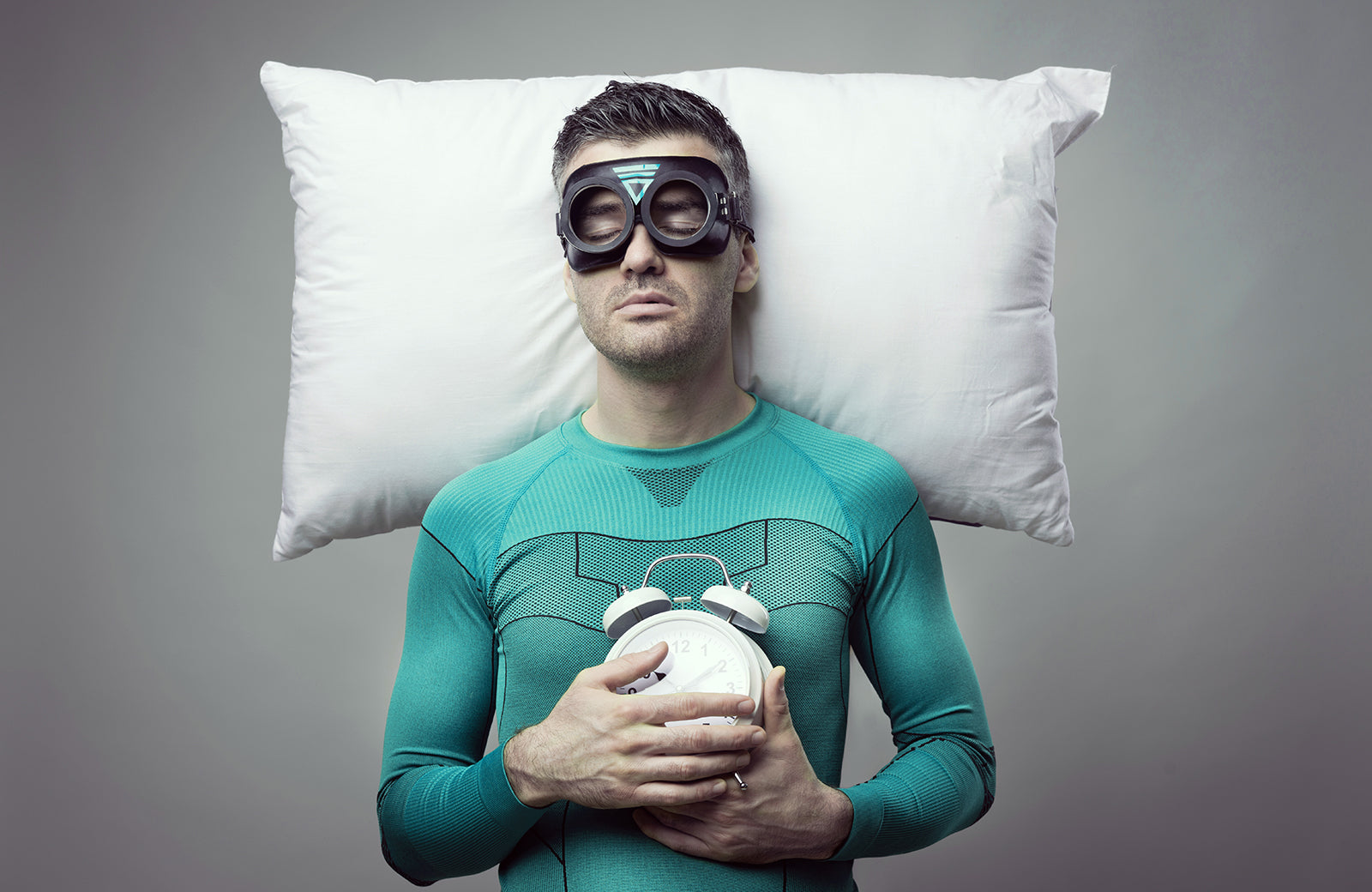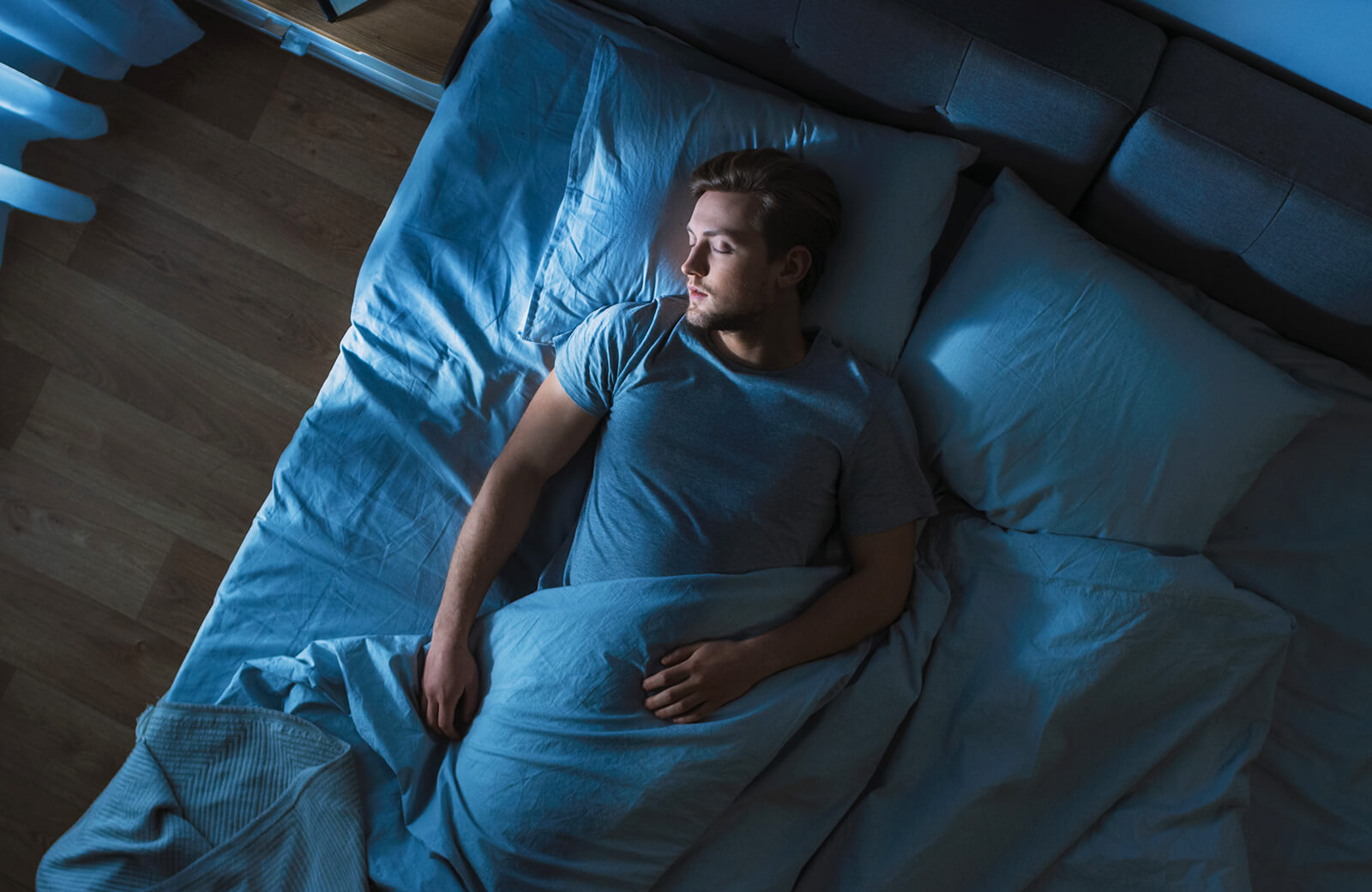
Start the day more alert
How we start our day is crucial for our health and daily performance. Especially on dark winter days and when working from home, we often find it difficult to get out of bed and fully awake. We'll show you simple tips to make getting up easier, get fit faster, and overcome morning fatigue so you can be healthy and productive throughout the day.
Table of contents
- Tiredness in the morning
- Tips for a wakeful start to the day
- Conclusion
1. Morning fatigue
Many people find it difficult to get out of bed in the morning and overcome their nighttime fatigue. This also has a biological basis: We all have an internal clock that regulates our sleep-wake rhythm and thus also influences how we wake up.
Typical "Early bird" have fewer problems with morning fatigue and can start the day faster. Studies show that this makes them not only more productive but also happier. A wakeful morning is therefore not only good for our mood, but also influences our daily well-being and performance.
The classic “Night owls” In contrast, they take longer to get going in the morning and tend to reach their peak performance in the early evening hours. Waking up early isn't in line with their natural rhythm and, in addition to a bad mood, often leads to pronounced fatigue and a slow start to the day.
With a few tips, even if you're not a morning person, you can make getting up in the morning easier and start the day more alert.
2. Tips for a wakeful start to the day
#1 Sufficient sleep
Healthy sleep habits prevent general fatigue. Important regeneration processes, especially during deep sleep, take place, preparing us for the next day. Those who get enough sleep overnight are more likely to be fit and have more energy in the morning. Exactly how much sleep is needed to feel rested and refreshed in the morning varies from person to person. However, experts recommend between 7 and 8 hours of sleep per night.
#2 Regular sleep-wake rhythm
Our internal clock also adapts to rhythms and routines, for example, when we go to bed at the same time every night and get up at the same time every morning. This way, you get your body used to a fixed rhythm and not only makes it easier to get up in the morning but also to fall asleep in the evening.
#3 Natural alarm clock: light

(Day)light and darkness act as external stimuli that adjust our natural internal rhythm to the natural daily routine and, among other things, influence the release of the sleep hormone melatonin. Light is therefore a natural alarm clock that can make waking up easier. For example, avoid blinds, curtains, and other blackout devices in the summer and use daylight lamps or wake-up lights in the winter.
#4 Avoid the snooze button
When the alarm finally goes off, you should get up immediately and avoid hitting the snooze button. Repeated snoozing causes your body to fall asleep again and again, jolting you out of its deep sleep phase with each alarm. This puts a strain on our brain and body, increasing sluggishness and fatigue in the morning.
Tip: Try out different alarm tones and use your favorite song, for example, to positively influence your mood as soon as you wake up.
#5 Activity and exercise in the morning
Sports and exercise They get your circulation going and help you wake up quickly in the morning. Just a few minutes of endurance training, strength training, or yoga after getting up get your circulation going, and even relaxing breathing and stretching exercises have a positive effect on your alertness in the morning.
#6 Healthy and balanced breakfast
It's best not to skip breakfast, as your body needs new nutrients in the morning to get back up to speed. A small, balanced, carbohydrate-rich meal is enough to provide your body with energy after getting up and facilitate a healthy start to the day. Coffee or tea, with their caffeine content, can also help you wake up.
3. Conclusion
-
Early risers start the day faster, are more productive and in a better mood
-
Sufficient sleep and a regular sleep-wake routine make it easier to fall asleep in the evening and wake up in the morning
-
Sufficient light (daylight, light alarm clock) supports the waking process in a natural way
-
Get up after the alarm goes off and do not use the snooze function
-
Exercise and sport in the morning stimulate the circulation and help against fatigue
-
A small healthy breakfast provides the body with energy and important nutrients
Best wishes and see you soon!



Leave a comment
This site is protected by hCaptcha and the hCaptcha Privacy Policy and Terms of Service apply.